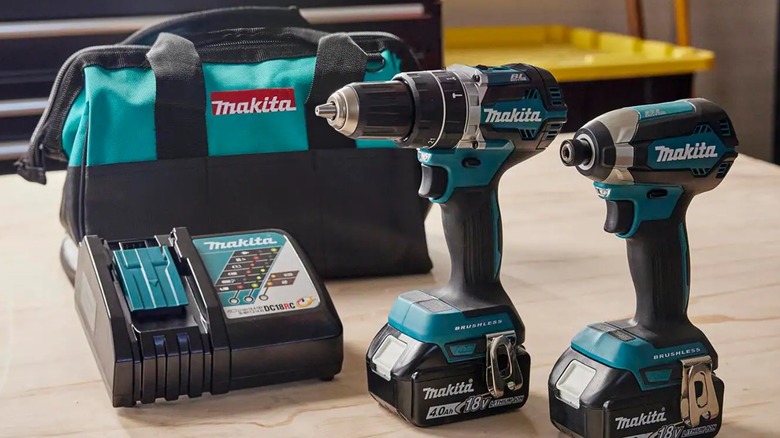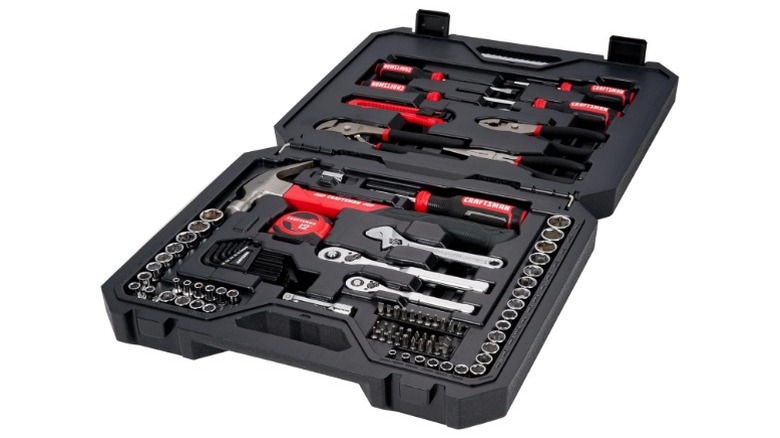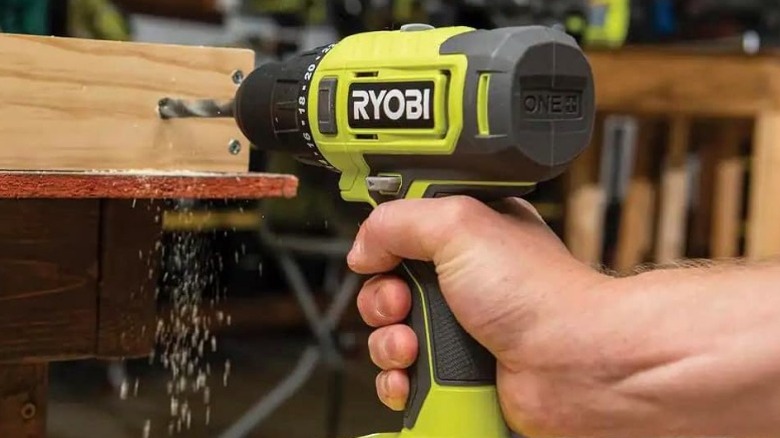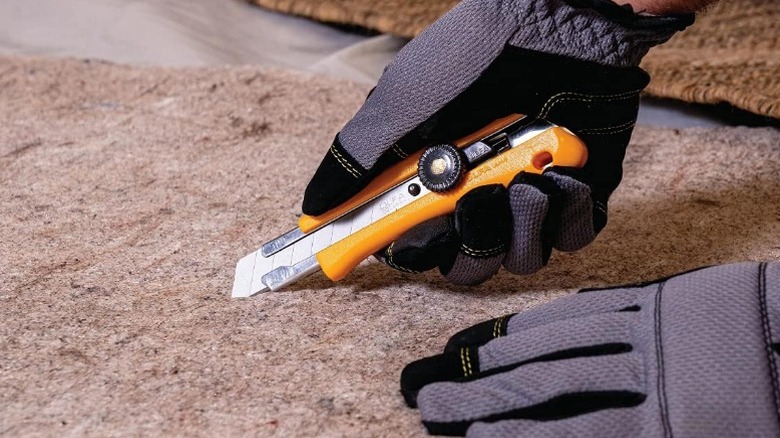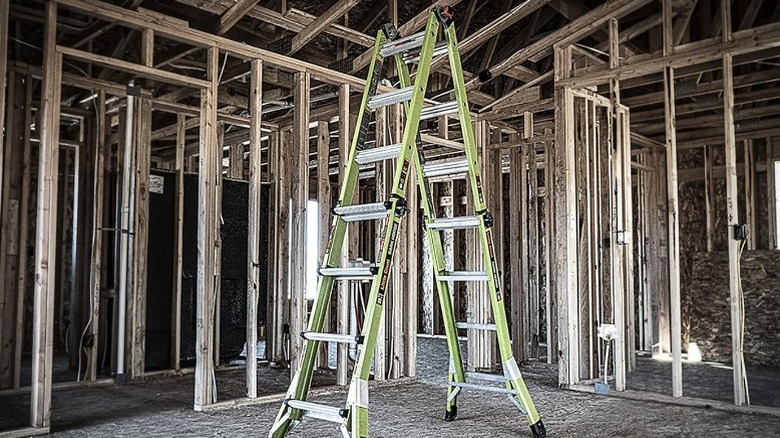5 Must-Have Home Improvement Items Everyone Should Own
We may receive a commission on purchases made from links.
Everybody is different when it comes to home improvement. Some DIYers enter a project ready to tear down their walls to the studs and rework entire rooms, while others might spend weeks prepping and planning for a basic fixture installation. However, everyone, from seasoned professionals to weekend DIY enthusiasts, needs to have a reliable set of equipment to complete these projects, and there are some tools that are vital to nearly every DIY task that you might consider.
I've been taking on home improvement jobs for over two decades, and there are a few products that I tend to use in just about every job, from major renovations to small DIY fixes. It's true that many projects might require specialty tools (it's hard to install tile without a tile saw, or refinish hardwood without a power sander, for instance), but there are also a handful of them that just about everyone should have in their toolbox. These essential items aren't tied to any single trade or specific type of work, but rather are universal tools and accessories that make everyday repairs and upgrades significantly easier to tackle. You might already have some of them in your home, but it never hurts to consider which items are the most essential so that you can make sure all of them have made their way into your collection.
Basic hand tool kit
This first one might be a little bit of a cheat since it involves multiple items bundled together, but just about every homeowner should have a decent multipurpose hand tool kit. These are usually sold in a carrying case or a tool bag and come with a range of the most commonly used non-electric hand tools that are bundled together at a lower price than what they'd cost individually. These kits are all pretty different, both in the quality of the tools and in the products that the manufacturer chooses to include.
There are a few essential items that you'll want to make sure the kit provides. A hammer, Phillips and flat-head screwdrivers, a pair of pliers, an adjustable wrench, an assortment of hex wrenches, a measuring tape, and a level should all be near the top of your list of prerequisites. I would recommend looking for a kit that includes all of the essentials, but favors quality over quantity. Speaking as someone who's spent a lot of hours cursing at a cheap adjustable wrench that wouldn't hold its grip, you don't want to waste money on poor tools just to get a few non-essential bonus items from a cheaper brand. The Stanley 65-Piece Home Tool Kit sold at Home Depot is a solid budget-friendly option, though someone looking for a larger kit might consider something like the Craftsman 102-Piece Mechanics and Home Tool Set. If one or two specific items are missing from a kit you like, you can always pick them up separately as well.
Cordless drill
A good cordless drill from a major brand is probably the most universally important power tool you might find in your local hardware store. Part of the reason it's so essential is that the basic rotary power that drives it unlocks dozens of different potential applications. Drilling and driving are already essential in virtually every field, from framing to plumbing. The toolless adjustable chuck used in modern drills allows you to attach a nearly infinite number of different bits to achieve different-sized holes, in different bit patterns and material removal methods, across different mediums.
There are bits that allow you to drill into wood, metal, masonry, plastics, drywall, and virtually every other material you're likely to come across. Likewise, the correct associated driver bit can be used for inserting and removing screws, nuts, and bolts of all kinds. There are even a bunch of other useful drill extensions that have nothing to do with drilling whatsoever, such as paint mixers, scrubbers, and burr grinders. So you may end up using your drill even in projects that don't traditionally involve drilling and driving, such as putting a fresh coat of paint on the walls.
I would be hard-pressed to think of the last home improvement project I did that didn't involve breaking out my drill at some point in the process. This extreme versatility of function is why I always recommend the drill as the first power tool a homeowner should purchase. The kind of drill you buy will depend largely on factors like your budget, how frequently you intend to use it, and the kinds of materials you are planning to work with. I got by with a budget Ryobi drill for home DIY for years before upgrading to a quality brushless DeWalt model.
Stud finder
If you're going to be doing anything involving your walls, you'll need to know where the studs are. These are the wooden 2x4s behind your drywall that serve as the wall's frame and are the only parts capable of bearing the weight of heavy objects. You might be able to get away with hanging a picture frame on just drywall, but something like a TV, a mirror, shelves, curtain rods, or cabinets should all be attached directly to the studs, or else you might find the thing you were hanging on the floor and a big hole in the wall where it used to be.
A good stud finder will show you the exact location of the studs within the walls, and there are a few different kinds of them out there. You might be familiar with basic electronic stud finders. You run these along the walls, and they light up or beep when they detect the edge of a stud. The best versions of these stud finders, such as the Zircon Multiscanner A200, can provide greater accuracy while also detecting AC wires and metal pipes, making it much safer to drill. Many of these are on the more expensive side, but you can find some for under $20.
But the method that I've found provides the best in both accuracy and affordability is to simply purchase a ~$10 magnetic stud finder like The StudBuddy. These don't have any fancy electronics. They're just basic magnets with felt backing that you slide in a zigzag pattern across your wall until you feel the magnet attract itself to one of the screws holding the drywall to the stud. This gives you a precise location with a low margin of error.
Utility knife
One tool that's all too often overlooked is a quality utility knife. You'll want a good one of these on hand if you ever need to trim carpet or vinyl, score drywall, remove caulk, or do any number of other basic cutting applications for things like rope, zip ties, or twine. These aren't overly expensive, but it's worth investing in a good one. Those cheap ones you find at the dollar store with the flimsy razors and thin plastic housing might be good enough to cut open boxes, but a sturdy knife with quality razor blades can make tough jobs a lot easier and safer, since you can put less muscle into each cut. They also tend to last longer and maintain their edge better, prolonging their use.
I personally love the OLFA 18mm Heavy-Duty Utility Knife, which has a list price of $13.93 on Amazon. I've used this thing to cut everything from insulation and drywall to roofing shingles and copper wire. The knife itself has a durable ABS grip over a carbon stainless steel interior chamber, and a ratcheting rubber wheel to lock the blade in place. This gives you a sturdy, rigid grip to work with that has a locking mechanism that won't break at the first sign of pressure. The blade that comes with it is nice, but it fits just about any 18mm razor blade, just like most utility knives.
In terms of high-quality blade replacements, the DeWalt 18mm Snap Blades, OLFA Ultrasharp Black Snap-Off Heavy-Duty Blades, and Tajima LCB-50 18mm Snap Blades are all solid options. I usually stick with OLFA, but I've used these other blades before, and they're solid contenders.
Step ladder
The last item on our list that every homeowner should own is a good quality step ladder. I know what you're thinking: I can balance precariously on a kitchen chair if I want to, OSHA doesn't come to my house. Fair enough, but you should know that falls are the second most common cause of unintentional injury deaths across the entire world, and are a common reason for ER visits in the U.S. So investing in a quality ladder and using it safely should be pretty high on your list of priorities.
A good step ladder provides a much safer means of changing lightbulbs, painting walls, cleaning gutters, and getting up and down from your roof when necessary. Any ladder requires proper safety precautions (like setting it up on firm, level ground, never placing it in front of doors that might swing into it, and always wearing non-slip shoes), but some are safer than others.
Gorilla, Little Giant, and Werner are all excellent step ladder brands with superb reputations for safety and reliability. The Gorilla 22ft. Reach Aluminum Multi-Position Ladder is a solid, all-around choice that will likely meet most homeowners' needs. This is like the Autobot of ladders, fulfilling just about every indoor and outdoor need you might have. It can be used as an extension ladder, a double-sided twin stepladder, a 90° wall ladder, a stairway stepladder, or it can be broken down into two scaffold bases if you get the additional Rail Brackets accessory. It offers 28 telescoping adjustable heights and has an IA Extra-Heavy Duty rating that supports up to 300 lbs.
